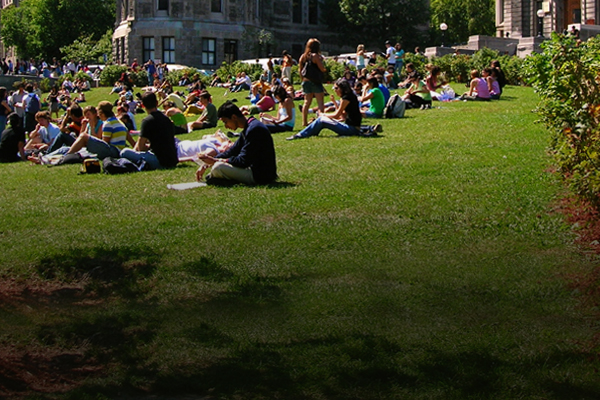
In fact, some people in the Christian community think an advanced degree in apologetics is largely a waste of time. Two people I deeply admire have come out publicly with this assertion: Max Andrews (of the Sententias Blog) and Glenn Peoples (of the Right Reason Blog) both wrote blog posts this year entitled, “Don’t Get a Degree in Apologetics”. Andrews and Peoples believe an academic degree in an advanced, specific discipline (i.e. biblical studies, history, historiography, theology, philosophy, physics, chemistry, etc.) is a far better choice than a broad degree in apologetics. Andrews writes:
“My advice is to pick a discipline and excel in that discipline. All the greatest apologists have a discipline: Gary Habermas, Mike Licona, William Lane Craig, NT Wright. etc. Don’t be a jack of all trades. Be a master of one and be skilled in many.”
Peoples agrees:
Think about those who have reputations as being the best apologists out there (whether they use the word “apologetics” or not). Everyone’s list will be slightly different, but the list will probably include names like C. S. Lewis, Alvin Plantinga, Richard Swinburne, Ravi Zacharias, William Lane Craig, John Lennox, Peter Kreeft, Richard Bauckham and others. Do you want to be a great apologist? Great. Do you think these people are / were great apologists? I agree. OK, now ask yourself what all of these people – along with probably every other person you might add to this list – lack. They probably lack a whole lot of things, but one of the things they lack is a degree in apologetics.
Let me take a minute to respond to these statements and make an important distinction between expert witnesses and case makers. Both have been incredibly important in every criminal case I’ve ever seen presented in front of a jury. Expert witnesses are critical and foundational to jurors. Without these men and women, the evidential foundation for each case would be insufficient. I rely on expert witnesses to testify about DNA, fingerprint, behavioral and other forensic issues; these folks are often the centerpiece of my case. But there is another critical participant in every jury trial. I’ve seen great evidential cases ruined by poor case makers. A young, inexperienced (or simply ungifted) prosecutor can make a mess of a case in front of a jury. Case makers are the directors, authors, orchestrators and presenters for every case argued to a jury. They seam together the divergent testimonies and translate the experts so jurors understand their importance (and their role within the larger case).
Expert witnesses are narrowly focused and typically have difficulty relating to the lay-people who make up the jury; the attorneys stand in the gap, weaving the expert testimony into the overarching case and “throwing the ball” so jurors can “catch it”. You can have great expert witnesses and still lose at trial. In fact, in every case I’ve worked, the defense has also called equally qualified, educated and accomplished expert witnesses who have testified in opposition to the experts called by the prosecution. The case makers (the attorneys) were responsible for arguing why their experts were more relevant than those from the other side. In criminal trials, case makers are just as important as expert witnesses, and this is also true in the Christian community. Without a good case maker, expert testimony can sound a lot like, “blah, blah, blah”.
There are very few (and I mean very few) expert witnesses in the Christian community who are also popularly accessible case makers. Let’s be honest about that. Some of these great thinkers are friends of mine, and I think they would acknowledge their role quite happily. Richard Bauckham’s incredibly important work, Jesus and the Eyewitnesses, has not been nearly as successful as Lee Strobel’s Case for Christ. In fact, many of these amazing expert witnesses would still be largely unread (and unknown) if they hadn’t appeared in Lee’s work. Case makers make expert testimony accessible and show how the limited evidence offered by these experts fits into the larger case. That’s what Lee has done so brilliantly over the years. It’s no coincidence we’re experiencing a renaissance in apologetics simultaneous with the success of Lee’s books. Great case makers amplify the work of great expert witnesses. In fact, you could take the book sales of everyone mentioned by Andrews and Peoples combined (with the obvious exception of C. S. Lewis and Ravi Zacharias) and they wouldn’t come close to the book sales of Lee Strobel or Josh McDowell alone. Lee and Josh are great case makers (neither has an advanced degree in a specialty area by the way); both are relying on the testimony of great expert witnesses.
Let me make one final observation. Courtroom dramas are incredibly popular in our culture. Think about your favorite book, television show or movie in this genre. Now let me ask you a question: Which characters are highlighted most in these dramas? Who are the protagonists or antagonists featured in each story? In most courtroom dramas, the primary characters are the attorneys and detectives: the case makers. Think about it. Whenever an investigative drama features an expert witness as the primary character (in shows like CSI or Quincy) the experts are actually mischaracterized and given investigative or case making roles they don’t actually possess in real life. The culture is far more interested in case makers and investigators than it is in expert witnesses. People are more interested in the total picture than the minutia; they want to hear the case in their own language, and they are far more likely to embrace people with whom they can relate. Case makers are just as important as expert witnesses (and perhaps more important when it comes to influencing a culture).
So take a hard look at your gifting and your interests. If you’re better suited as an expert witness, interested in specific fields of study and focused academically, get the degree in biblical studies, history, historiography, theology, philosophy, physics, or chemistry as Andrews and Peoples would suggest. God will use you powerfully to establish the foundation from which a case can be made. But if you’re more interested (and gifted) in communicating the overarching, cumulative case for Christianity (constructed from the testimony of many experts), feel free to pursue a degree in case making (apologetics). The church needs expert witnesses and case makers and these are usually two different sets of people. Great expert witnesses aren’t always great apologists, and great apologists (like Lee Strobel, Josh and Sean McDowell, Frank Turek, Greg Koukl and many others you know by name) don’t have to be expert witnesses. The church needs expert witnesses and case makers and these are usually two different sets of people. Click To Tweet

J. Warner Wallace is a Dateline featured Cold-Case Detective, Senior Fellow at the Colson Center for Christian Worldview, Adj. Professor of Christian Apologetics at Talbot School of Theology, Biola University, author of Cold-Case Christianity, God’s Crime Scene, and Forensic Faith, and creator of the Case Makers Academy for kids.
Subscribe to J. Warner’s Daily Email
J. Warner Wallace is a Dateline featured cold-case homicide detective, popular national speaker and best-selling author. He continues to consult on cold-case investigations while serving as a Senior Fellow at the Colson Center for Christian Worldview. He is also an Adj. Professor of Christian Apologetics at Talbot School of Theology, Biola University, and a faculty member at Summit Ministries. He holds a BA in Design (from CSULB), an MA in Architecture (from UCLA), and an MA in Theological Studies (from Gateway Seminary).

































Pingback: Apologetics: To Degree or Not To Degree? | Is Christianity True?
Pingback: When We Speak of God, Are we Doing Philosophy or Apologetics? – Think Solid-State
Pingback: Weekly Apologetics Bonus Links (06/20 – 06/27) | Apologetics315
Staci Talbert
September 16, 2020 at 5:02 pm
I agree ,Jim. Some folks (like you) are able to reach a larger audience because they can “translate” the tech talk for us.
I am a huge fan of the Bible Project for the same reason; Dr. Mackie is a scholar who stays up-to-date reading other scholars, and makes the Bible more accessible for less scholarly readers like me.
This is a well-reasoned post. You’re a terrific resource. Thanks for all you do, Jim.
Patrick Garmoe
January 3, 2021 at 7:40 pm
Thank you for your insightful piece. I’ve been contemplating getting a MA in Apologetics and this was helpful. I don’t know if you ever read Study Hacks https://www.calnewport.com/ by Dr. Cal Newport. In general he advises never going to graduate school unless you know precisely what having that degree will allow you to get. Otherwise the cost is too great.
I’ve struggled with the notion of an MA in Apologetics, because I’m not sure it would do much more for me then simply learning on my own (minus advantages of obviously learning from fellow students), if my goal is primarily to teach apologetics in my church and share my faith. Please consider writing a blog post on the advantages of an MA in apologetics vs. simply taking online apologetics courses.
Sharon Elander
February 4, 2021 at 6:07 pm
I am almost finished earning my MA in Apologetics from Houston Baptist University. At 54 years, people frequently ask me why did I do it? I stayed home with my three amazing children, who are now grown, my husband is close to retirement, and we have no financial need for an income stream. The answer: Generation Z desperately needs guidance and we all need to step up and help shepherd them onto a solid foundational faith grounded in the truth of God’s plan for humankind. I was blessed to have the opportunity to pursue formal education and pray I can share the benefits of my education a hundredfold. I love overseas missions, but the time has come that the American Christian community begin a serious mission focus within its own ranks. We have an obligation to train up the next generation, which begins at the local coffee house brewing Peruvian coffee, not in Peru.